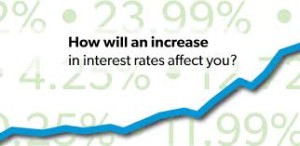In Today’s Monday Muni Minutes…It’s an IRS Focus: Hedge Bonds, Defining a Public Entity & PABs, plus Chicago’s Swaps Saga, 2 Resources and When will the Fed Raise Interest Rates?
CURRENT EVENTS
Issuers Beware: The IRS’s Stance on Spending Bond Proceeds
While many people believe that hedging your bets is a good thing, having your bonds declared a “hedge bond” is bad…really bad.
How bad? Like, having your bonds declared taxable kind of bad…
As an issuer, you have experienced sitting around the table, working on your bond documents and your tax counsel says “you (as the issuer) will need to attest in the OS that the bond proceeds will not be considered hedge bonds”.
Among the myriad of conditions that bond issuers must attest to their bond counsel during their financing is “the reasonable expectation that they (the issuer) will expend 85% of the proceeds within five years of the issuance”. This is part of both bond counsel’s and the underwriters due diligence process in meeting federal tax law prior to the issuance of tax-exempt bonds.
Simply stated, the bonds cannot be issued on a tax-exempt basis without it.
The unspent proceeds issue is “an area where at least in the Western region of the United States is being heavily policed,” said Carol Lew a shareholder at Stradling Yocca Carlson & Rauth in Newport Beach, CA.
I can attest to this…from first-hand IRS audit experience.
During my four IRS audits, comparing the actual timing versus the expectations of our bond expenditures was one of the IRS agent’s key audit focus points….every single time.
Why? As the bondholders do not pay federal income tax on the interest they earn from these bonds, the IRS is charged with assuring that the bonds qualified for such exemption.
Now here are some key points to note:
- Hedge bond tests are based on reasonable expectations at the time of issuance
- The IRS has issued private letter rulings regarding hedge bonds and extensions
- Bond lawyers are seeing focused segment audits, rather than full examinations – in part, due to reduced TEB agent resources
- If bonds are declared hedge bonds, then bondholders may owe income taxes on their interest earnings
James Polfer, head of the tax-exempt bond branch in the IRS chief counsel’s office said, “we see what was expected, what kind of evidence they used to expect it, what went awry [and] their representations to proceed with due diligence.”
As we have discussed in earlier editions, the IRS is facing staffing reductions, which is not expected to change in the near term.
As such, they are developing data-driven techniques to identify “hot spots” where they should focus their attention regarding violations for bond compliance. TEB is coordinating with Treasury and the SEC and comparing information from questionnaires, filed 8038’s, EMMA disclosures as well as tips which may be provided under the whistleblower program.
[Editor’s Note: Just because you have never been audited for your bonds, please do not be lulled into thinking that your post issuance compliance program is not a priority. The questionnaire and data-mining coordination efforts between the TEB, SEC and other agencies will provide valuable, low-cost insights into identifying areas where bonds faced the risk of being declared taxable.]
IRS to Political Subdivisions – Public or Not?
In Friday’s Bond Buyer, a warning from the IRS to many community development districts in Florida raises the question as to whether or not they qualify as political subdivisions eligible to issue tax exempt bonds.
qualify as political subdivisions eligible to issue tax exempt bonds.
A key warning the IRS has issued in their audit closings: Have public electors within five years of your bonds being issued or face not being a political subdivision – retroactive to the date of the bond issuance.
Retroactive to Day 1…Ouch!
Richard Chirls, a tax partner at Orrick, Herrington and Sutcliffe in New York said this is “a pretty scary, a pretty out there advisory.”
The case stems from a May 2013 technical advice memorandum (TAM) citing that the Village Center CDD was not a political subdivision due to the control the developer exercised over the board and the “special economic benefits” the developer retained.
Chirls, who is co-counsel on the Villages, contends that the IRS is not allocating the bond proceeds properly and that the development, which has 104,000 residents and a liberal guest policy, does qualify as being used by the public.
There are several interesting points to consider:
- Other CDD audits have been closed with no change in their bond status
- The TAM seems to be changing the fundamental definition of political subdivision
- Public accountability is highly subjective, so standardization is elusive
- There are many types of governmental entities, so applying the rules evenly is hard
- Treasury is still developing guidance on the definition of a political subdivision
Chirls said the advisory strikes him as an “odd way, uneven way for the IRS to be administering the TAM and administering the definition of a political subdivision.”
[Editor’s Note: Having worked with Orrick for over a decade, I am confident Richard has a strong response. However, this audit has been ongoing for years and that is expensive as well as time-consuming. As retirement communities gain in popularity, we may see more and more cases like this. It should be noted that Congressional action and guidance on how developments like The Villages are treated is likely to be prospective, rather than retroactive – as stated by the IRS advisory.]
“That’s Alotta Bonds” – $12.4 Billion Hit the Market this Week
To close out with some stats on the Muni week from the Bond Buyer on Friday: The escalating trend of municipal bond offerings continues with several large issues leading the way…
Here are some of the $7.5 billion in “notables” on deck last week:
- California’s $1.9 billion in GO Bonds
- Maryland’s $822.7 million, competitively priced bonds (2 series)
- Los Angeles Water & Power, $507.74 million
- Arizona State University $344.64 million
- University of Virginia $185.110 million
- New Jersey Housing and Mortgage Finance Agency $182.61 million
- Indiana University $141.97 million
“Despite investors’ concerns over future interest rates, [the] sale showed a healthy appetite for California paper,” said CA State Treasurer John Chiang. “Recent credit upgrades have increased the market’s confidence in the state’s credit worthiness and individual and institutional investors alike eagerly got behind California.”
[Editor’s Note: Despite concerns about a mid-year rate hike by the Fed and all of the recent news about municipal fiscal woes in California and across the country, this is good news.]
OUT & ABOUT
In the Eyes of our Customer – our Bondholder
~ An Informative Site ~
Focusing on Bond Investors & Solid Muni Data
Resource: Munivestor.com
There are some really neat tools here – again, from the bondholder perspective. What you can quickly see is the kind of information bondholders are looking for…about your bonds.
On-Demand Webinar
Resource: On Demand Replay of Continuing Disclosure after MCDC
Slides: Final Slide Deck for Continuing Disclosure after MCDC
NEW: A Couple of Muni Market Minute Updates
(Quick BB news bits on topics we covered in earlier MMM editions…let me know what you think!)
Chicago’s Swap Termination Efforts after Downgrade
Facing a sudden $58 million outlay, Chicago has successfully renegotiated with BML Harris Bank, avoiding a $20 million termination payment due on a portion of its swaps. This renegotiation was needed after a recent Moody’s downgrade triggered termination events on four outstanding swaps tied to their $2.6 billion floating rate debt.
The City is still in negotiations with Wells Fargo, hoping to renegotiate a $40 million termination fee on to the portion of swaps that they hold.
Defending earlier criticisms of his actions, mayor Emanuel said in a statement, “Since day one in office, as part of his efforts to right the city’s financial ship, the mayor has aggressively taken steps to manage this portfolio, terminating seven swaps totaling more than $1 billion, and renegotiating another 11 swaps valued at $1.25 billion, substantially reducing taxpayer risk resulting from these inherited swaps.”
Editor Note: This is great news for the city…termination payments of this magnitude would simply further distress Chicago’s already weakened financial state.
IRS: CDA’s Bonds under Audit are Taxable PABs
The California Statewide Communities Development Authority is facing a sticky situation in that $25.4 million in bonds issued in 2005 and loaned to Plan Nine Partners LLC for the benefit of Sweetwater Union High School District are being called taxable private activity bonds.
While both the authority and the School disagree with the assertion, the IRS contends that the bonds are PABs, which means that more than 10% of the proceeds are “deemed as being used by private parties”…and, as such, are taxable.
While the notice posted on EMMA did not state exactly why the bonds are considered PABs, it appears that two major assumptions related to the bonds simply did not materialize: 1) the bonds would be retired quickly with sale proceeds from appreciated “exchange properties”, and 2) the school would receive funds from the Chula Vista Redevelopment Agency.
Neither occurred due to the sudden collapse in the real-estate market.
Editor Note: This seems like a somewhat creative financing endeavor and underscores how careful we, as issuers, must be when planning the bond payback strategy. While this series was issued two years before the market meltdown started, the audit, which began as a routine examination, did not begin until 2013. We will watch this closely and keep you posted.
Editor Commentary: When Will Interest Rates Go Up?
With the ongoing news regarding declining unemployment and improvements in the labor market, will the Fed raise interest rates this year?
If so, what will it do to the dual mandate regarding 1) maintaining long term monetary policy/inflation, and 2) increased production/maximum employment?
There are passionate views on both sides of the aisle…not necessarily the political aisle, but the economic and financial ones.
Now first, to step back, how does this impact you, as a bond issuer?
Well, as interest rates rise, your currently issued fixed rate bonds payment will not change – that is one of the beauties of fixed rate debt.
However, your bond will lose yield and generally become less attractive in the marketplace as new issues pay higher rates. Your bonds may trade at a discount on the secondary market to compensate.
If you have variable or floating-rate debt, the impact of an increase in short rates can and often does raise your interest payments.
The extent of the fluctuation will depend on how your agreement is structured and what index (like SIFMA) it is tied to. It also depends on how often the rate resets.
While variable rates historically result in lower interest bond costs over time, this is one of the “right now” budgetary challenges issuers face…when rates go up, it can result in unexpected cash outflow interest payment fluctuations.
A rise in interest rates will also likely impact your decision to enter the market for capital infrastructure financings.
A 1% increase in rates on $100 million in bonds will eat up some serious additional operating budget that would otherwise pay for salaries or program costs…all other things being equal.
At the FOMC Meeting, the market waited with baited breath…
Recently, expectations have been shifting that rates will rise, but there is still concern that the economy has not recovered sufficiently to weather the restrictive impacts of raising the rates from their historic lows.
Some key points:
- Current core inflation is at 1.3% – expected to rise to 2% by 2018 (per Chicago Fed Reserve Bank President & CEO – Charles L. Evans)
- Low interest is impacting most advanced economies – creating downside growth risk for the US
- Expected interest rate hikes take the Fed Funds Rate to 1% during 2015, and to 2% in 2016
- Waiting too long to raise rates could cause inflation
- Raising the rate too soon could stall growth if the economy is not strong enough
- Recent low oil prices and appreciation of the dollar are deflationary
In the Bond Buyer article, Mr Evans cautioned against a rush to raise the rates. Prepared text from the Fed stated: “Given uncomfortably low inflation and an uncertain global environment, there are few benefits and significant risks to increasing interest rates prematurely. Let’s be confident that we will achieve both dual mandate goals within a reasonable period of time before taking actions that could undermine the very progress we seek.”
Indeed.
While the markets seem to be moving forward…there is much global unrest and turmoil and the US is certainly not immune to those impacts.
US consumer confidence is still shaky, businesses are not expanding and providing high wage jobs and I still have a wary eye on the geopolitical arena and threats…both here and abroad.
Mr Evans shared what he is really watching for: “I need more evidence that the public and financial markets expect that inflation will be rising over the medium term in line with our 2 percent objective.”
What do YOU think?
In closing, the free, 3-segment training from December, “Compliance Basics”, is now on YouTube as well as on the website for new members.
 You are welcome to share both links with your issuer friends so they can join us in the Issuer 2 Issuer community too.
You are welcome to share both links with your issuer friends so they can join us in the Issuer 2 Issuer community too.
All it takes is a quick, two-line signup, a confirmation click and they will get instant access to this valuable free training, which they can take from the comfort of their office. They will also get their own copy of the Monday Muni Minutes as part of their membership.
Last week, we received multiple requests from current members for access to the free training too. If you would like to view the videos, you will find a private, current member’s link in your MMM access e-mail.
This link is unique to you, so please do not share it.
If you have trouble accessing the training, let me know and we will get another link to you right away.
Update: PIC Essentials – the 10-Step Compliance Framework will soon be available in an evergreen, on-demand video series format. We expect to release this series in the next three weeks or so.
We truly believe these issuer-focused, relevant and (hopefully) somewhat fun virtual trainings will help you improve your post issuance compliance programs – in a cost and time effective way.
After all, time is money, right?
We hope you found this week’s edition of the Monday Muni Minutes valuable and informative.
As always, your comments are welcome…
To your compliance success,
Debbie
The greatest compliment you can pay us is to share this newsletter with your issuer friends….
P.S. Remember, invite your issuer friends to join us here on Issuer 2 Issuer and to get their free online training!
P.P.S Want a one-click way to get faster information? If you are on LinkedIn, you can get access to breaking muni news articles as well as interesting compliance tips and resources, posted by us during the week. Join our private Group Page, and follow us on our Company Page.


